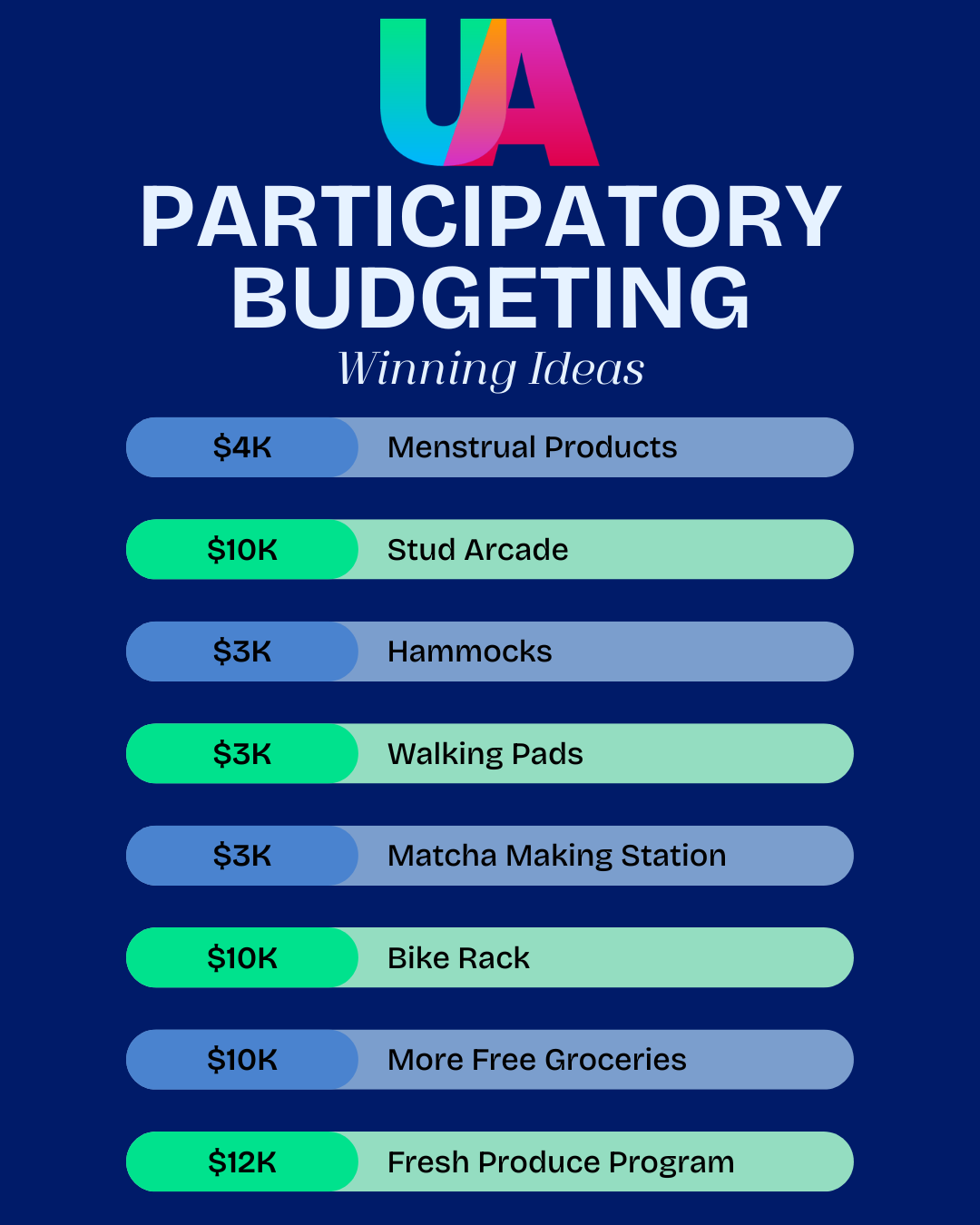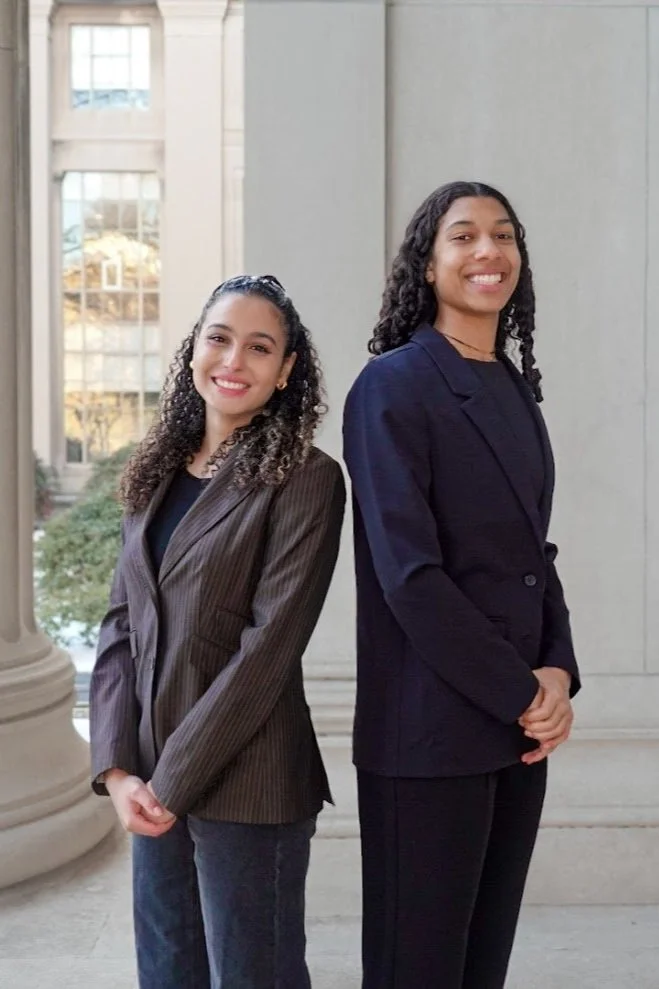A MESSAGE FROM YOUR UA PRESIDENT & VP
HONORED TO SERVE THE BEST STUDENTS IN THE WORLD
Government should be for you, about you, and accessible to you. We are committed to putting you first and are passionate about understanding how best to do that.
We know that MIT is a crazy place to be. We also know that you are the coolest people we will ever meet! That is why we want to meet you wherever you are. We can only hope that we can help you as much as we can learn from you.
If you have a problem, suggestion, or complaint, we want to hear it. Feel free to email me anytime at ahall5@mit.edu.
We’ve created a new avenue for you to connect with us and share anything on your mind — from campus policies and student life to personal challenges or ideas for change. Nothing is off limits.
When you fill out the form below, you'll be connected with a UA representative who can listen and support you. You’re welcome to include as much or as little detail as you’d like, and your privacy will always be respected. Or, if a boba chat with Alice sounds more your vibe, click the doodle below!
We're here for you — to support, connect, and make sure you never feel alone
Love,
Alice (President) and Mariam (Vice President)
ANNOUNCEMENTS


Community & Diversity Fund
We’ve launched a new funding resource to support undergraduate-led events that support community & diversity at MIT. The fund is launching with $30,000 for the remainder of the academic year. Applications are reviewed on a rolling basis (please try to apply at least 2 weeks before your event). Any current MIT undergraduate can apply. Events must be open to all MIT undergraduates. For more information, visit: https://ua.mit.edu/community-and-diversity-fund
Participatory Budgetting Results!
Thank you for voting in the UA's Participatory Budgeting Initiative! Overall, 100 ideas were submitted, and 337 people voted on a refined list of 20 projects. The winners for this year are: free menstrual products, stud arcade, hammocks on campus, walking pads, mocha making station, bike rack, more free groceries, and fresh produce program. The winners were determined using a weighted ranked-choice voting algorithm.
The UA executive committees will work on implementing these this semester. Email ua-pb@mit.edu if you want to help implement any of these projects, or if you have any other questions!
Recent Actions
2023-2024 FOOD INSECURITY
VIEW THE FOOD INSECURITY REPORT
Key Findings
Contrary to popular belief, there is no evidence to suggest that students on meal plans are any less likely to be food insecure than students who don’t have meal plans.
Students who experience food insecurity are more likely to need additional financial resources compared to their counterparts. However, when asked whether a lack of time or lack of money was the leading cause of food problems, the population was split (forty-one versus fifty-one percent, respectively). Furthermore, there’s no evidence to suggest that students that experience food insecurity spend more money on food or buy more expensive meals compared to their peers.
From the perspective of students, the effective TechCASH to USD exchange rate is roughly two dollars in TechCASH to three dollars in USD. That is, for every dollar that MIT gives students in TechCASH, the perceived value to the average student is roughly about sixty-six to seventy-five cents
THE UNDERGRADUATE ASSOCIATION COUNCIL CALLS ON THE MIT CLIMATE NUCLEUS TO RECOGNIZE APPOINTED REPRESENTATIVES OF THE STUDENT SUSTAINABILITY COALITION AS A STUDENT VOICE ON CLIMATE AND SUSTAINABILITY ISSUES
On-Campus Election Day Holiday Advocacy
Various students and student groups have expressed support for making Election Day a Student Holiday over time, citing the need to reduce academic and professional obstacles for students, staff, and faculty to vote; the symbolic value of MIT supporting civic engagement and democracy; and student life benefits of having an additional holiday mid-semester. We have met with relevant MIT administrators, faculty, and student groups to develop a proposal for an academic calendar change that we believe is the most feasible and practical option for implementing an Election Day Holiday. A recent UA Public Affairs survey shows that undergraduate student support for the proposal is above 90%. We are now in the process of working with MIT faculty governance and administrators to implement the proposal.
View the Election Day Holiday Interest & Proposal
2020 MIT Undergraduate Sustainability Survey: Data Report
Over the course of the Fall 2020 term, members of UA Sustainability worked to prepare this all-undergraduate sustainability survey, in collaboration with other groups on campus that included, but were not limited to, the MIT Office of Sustainability, Environmental Solutions Initiative, and the Student Sustainability Coalition. The survey was designed to get a clearer idea of which sustainability-related issues MIT undergraduates know and care about, so as to better inform the work of UA Sustain and other student sustainability groups going forward. Questions covered 6 main topics: campus community, campus sustainability, external relations, fossil fuel divestment and the Climate Action Plan, career choices, personal sustainability.


